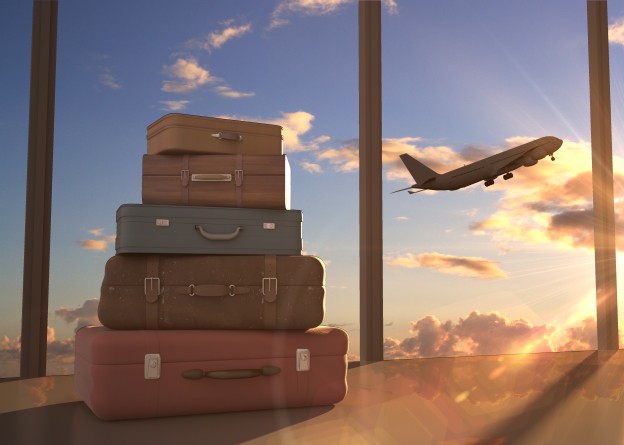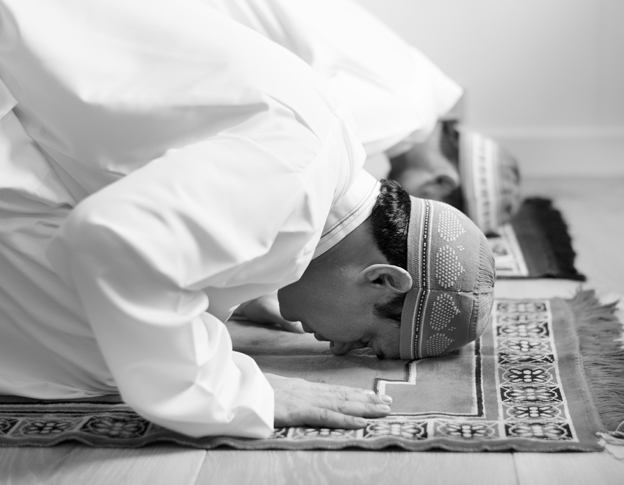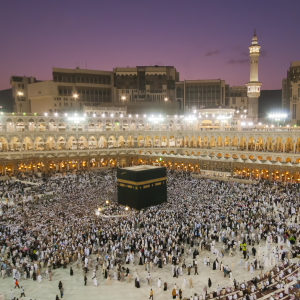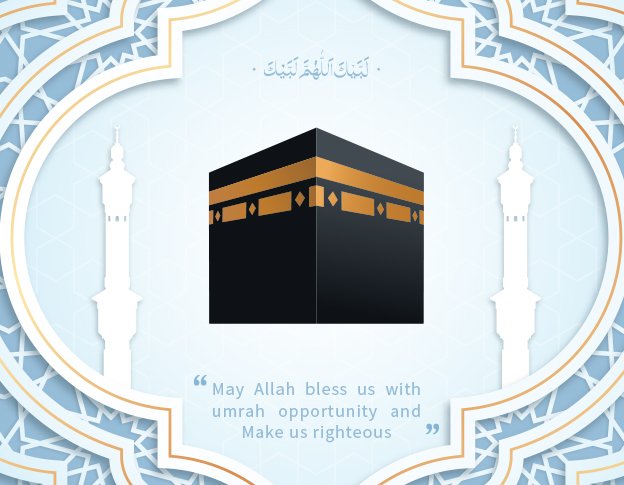- to share | to connect | to create | to inspire Be mindful of ALLAH and ALLAH will protect you
DO YOU KNOW THE ETIQUETTES OF TRAVELLING FOR HAJJ?

If you decide to oblige your religious obligation, you should be aware about the etiquettes of travelling for Hajj.
- If you are going to perform Nafl Ĥajj, it is important to take permission from parents or husband, if you are married. However, for Fardh Ĥajj no such permission is required.
- Women must travel either with her husband or with a Maĥarm. It is not permissible for her to travel otherwise if the journey exceeds 91 kms. If she does no doubt her Ĥajj would be valid but she will be committing a sin at each step she takes.
- To carry provisions for journey more than required for distribution to other companions and poor. This is a sign of acceptance of the Ĥajj by Allah.
- An `Aalim is required to carry books according to his requirement. Those who choose not to carry any books must accompany an `Aalim, otherwise at least carry a book like this one.
- It is a Sunnah to carry, Surmah, comb and Miswaak.
- Choose your company wisely; travel with only those whom you think is trust-worthy, pious & ready to help. Avoid travelling with those who are disrespectful; you are not obliged to travel with irreverent people.
- It is a Sunnah (tradition) to make a leader in the group of 3 or more people. That person will organise the affairs of journey. As the journey begins, among your co-travellers, choose the most righteous, intelligent, experienced, humble and forbearing person as the leader. He should fulfil the responsibility with utmost care. He should take note of the needs of his companions and see to their comfort. Others have to obey and comply with the decisions of the leader.
- Before your departure, meet relatives and friends and request for their forgiveness.
- Ask blessings from your relatives and friends before departure for their blessings. Their blessings are considered to be auspicious and full of prosperity. Request as many people as possible because one does not know whose prayer will be answered. Also ask from the people for those who come to say good bye.
- After wearing the dress in which one wishes to travel, it is Sunnah to offer four Rak`aat Nafl Ŝalaat in such a way that in first Rak`at Soorh-e-Kafiroon is recited, in second Soorh-e-Ikhlaaŝ, in third Soorh-e-Falaq, and in fourth Soorhe- Naas. These are to be recited after Soorh-e-Al Ĥamd. This Ŝalaat will act as protector of his property as well as family till his return.
- Do charity prior to leaving house as well as after leaving.
- Recite Bismillaah while taking the first step out of the house, thereafter recite the following supplication: Bismillaahi Wa Billaahi Wa Tawakkaltu `Alallaahi
Wa Laa Ĥaula Wa Laa Quwwata illaa Billaah”
(Allah’s name I begin with, and I rely upon Allah, there is no power and no strength except Allah)
- Recite Durood as frequently as possible.
- Visit the local Mosque and offer Two Rak`aat Ŝalaat. Please note prayers are not to be offered during Makrooh Period.
- Also recite Aayatul Kursee, Soorh-e-Kafiroon, Soorh-e-Naŝr, Soorh-e- Ikhlaaŝ, Soorh-e-Falaq, and Soorh-e-Naas all beginning with Bismillaah, and again at the end recite Bismillaah once more. Allah be willing one will be comfortable throughout his journey.
- To return home safely recite following:
“Innalladhee Faradha `Alaikal Quraana Laraadduka ilaa Ma`aad”
(Verily He Who ordained the Quran for thee, will bring thee back to the place of return. Soorah 28: Aayat 85)
- Recite following while boarding a bus, a car, a train or a plane:
“Bismillaahir Raĥmanir Raĥeem”…thrice
“Laa ilaaha illallaah” …once, and
Bahaar-e- Ĥajj
“Subĥaanal Ladhee Sakh-khra Lanaa Hadhaa Wa Maa
Kunnaa Lahu Muqrineena Wa Innaa ilaa Rabbinaa Lamunqaliboon”
(Glory to Him Who has subjected these to our (use), for we could never be able to do it. And to our Lord, surely, must we turn back. Soorah 43: Aayaat 13-14)
- Inform your date and time of arrival well in advance to the concerned people. People should welcome a Ĥaji on his return and request him to pray for them. Whatever Ĥaji prays before he enters his house, the prayer is answered favorably. And most importantly a Ĥaji must pray for everyone.
- Visit the local Mosque and offer two Rak`aat Ŝalaat before going home. Please note prayers are not to be offered during Makrooh Period.
- Don’t fail to bring gifts for relatives and friends, especially Dates, Zam-Zam, etc. But another important gift is to pray for relatives and friends.
Note:
During the Ĥajj journey you are bound to face difficulties. Make sure that you don’t complain about them. Keep your temperament in check. Don’t lose your temper, either with your family members, or fellow travellers or Arab residents. As mentioned in Quran, there are three conditions for acceptance of Ĥajj:
“Falaa Rafatha Wa Laa Fusooqa Wa Laa Jidaala Fil Ĥajj”
(Let there be no obscenity, nor wickedness, nor wrangling in the Ĥajj. Soorah 2: Aayat 197)
If you think you are distracted, look at your heart and recite the above Aayat and Laaĥaul Shareef a few times and you will be able to concentrate well. Make sure that you do not start a quarrel nor others instigate you in a fight. Sometimes Allah to test you brings about a tensed situation. Showcase patience, and pass this test successfully.
Make sure that a few wrong words do not ruin your reward and waste your efforts and the money you have spent on this pilgrimage. The people of Makkah are strong headed, be polite with them no matter how humiliating situation can be; especially do not object to the doings of those residing in Madinah, so much so that even does not think ill of their doings in your hearts. In this lies the success of both worlds for you.







